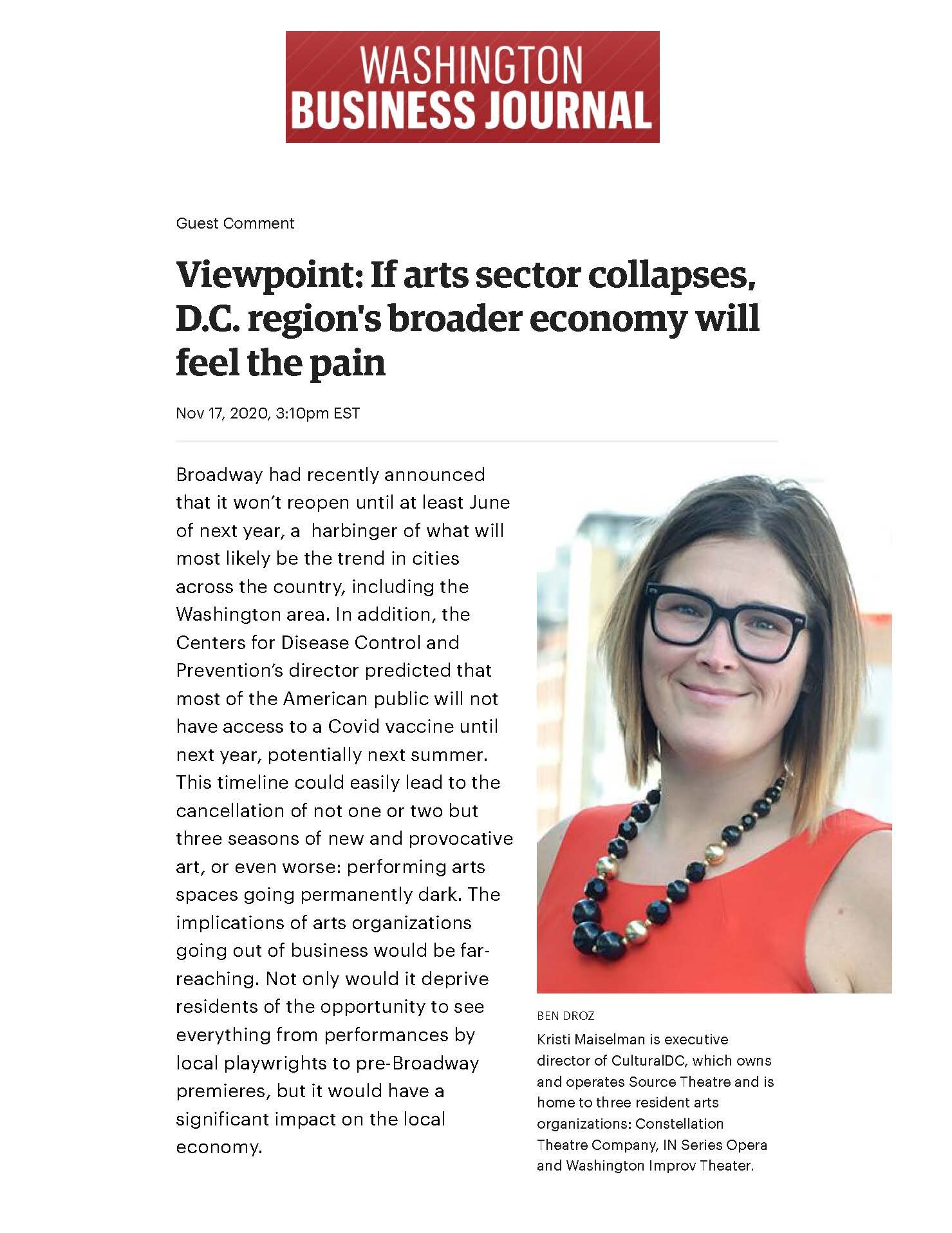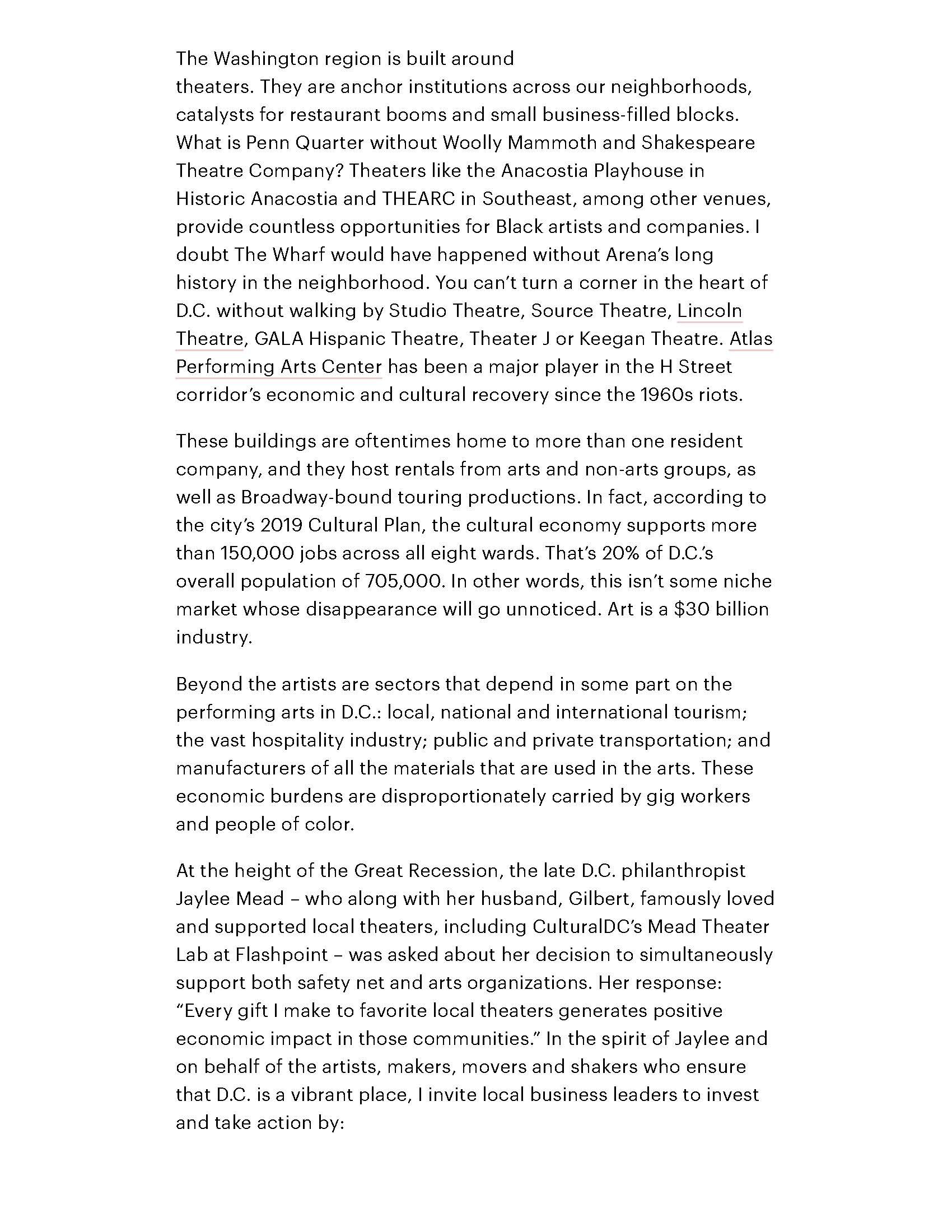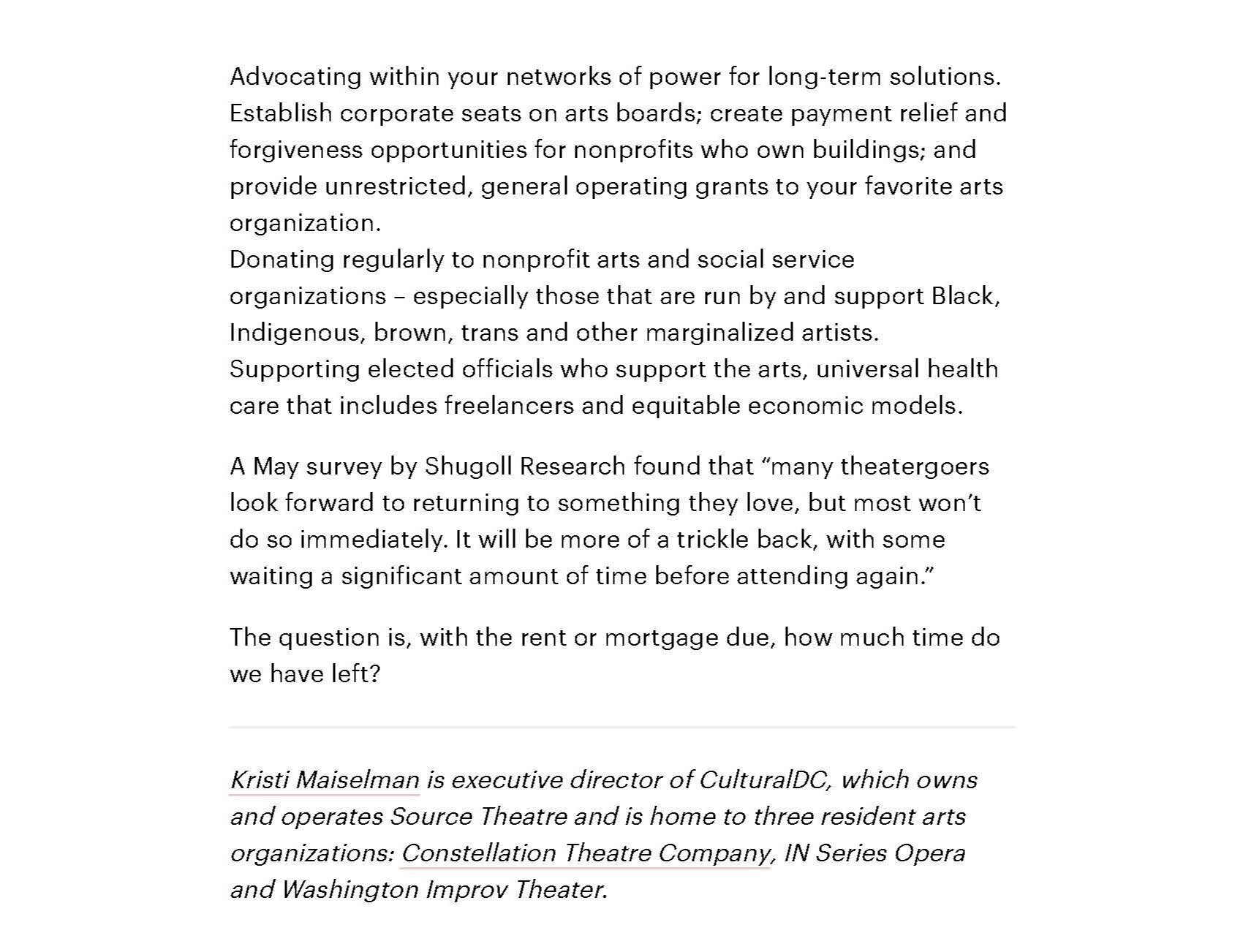Text Version and PDF below article images.
Nov 17, 2020, 3:10pm EST in the washington business journal
Viewpoint: If arts sector collapses, D.C. region's broader economy will feel the pain
Author: Kristi Maiselman, Executive Director of CulturalDC, which owns and operates Source Theatre and is home to three resident arts organizations: Constellation Theatre Company, IN Series Opera and Washington Improv Theater.
Broadway had recently announced that it won’t reopen until at least June of next year, a harbinger of what will most likely be the trend in cities across the country, including the Washington area. In addition, the Centers for Disease Control and Prevention’s director predicted that most of the American public will not have access to a Covid vaccine until next year, potentially next summer. This timeline could easily lead to the cancellation of not one or two but three seasons of new and provocative art, or even worse: performing arts spaces going permanently dark. The implications of arts organizations going out of business would be farreaching. Not only would it deprive residents of the opportunity to see everything from performances by local playwrights to pre-Broadway premieres, but it would have a significant impact on the local economy.
The Washington region is built around theaters. They are anchor institutions across our neighborhoods, catalysts for restaurant booms and small business-filled blocks. What is Penn Quarter without Woolly Mammoth and Shakespeare Theatre Company? Theaters like the Anacostia Playhouse in Historic Anacostia and THEARC in Southeast, among other venues, provide countless opportunities for Black artists and companies. I doubt The Wharf would have happened without Arena’s long history in the neighborhood. You can’t turn a corner in the heart of D.C. without walking by Studio Theatre, Source Theatre, Lincoln Theatre, GALA Hispanic Theatre, Theater J or Keegan Theatre. Atlas Performing Arts Center has been a major player in the H Street corridor’s economic and cultural recovery since the 1960s riots.
These buildings are oftentimes home to more than one resident company, and they host rentals from arts and non-arts groups, as well as Broadway-bound touring productions. In fact, according to the city’s 2019 Cultural Plan, the cultural economy supports more than 150,000 jobs across all eight wards. That’s 20% of D.C.’s overall population of 705,000. In other words, this isn’t some niche market whose disappearance will go unnoticed. Art is a $30 billion industry.
Beyond the artists are sectors that depend in some part on the performing arts in D.C.: local, national and international tourism; the vast hospitality industry; public and private transportation; and manufacturers of all the materials that are used in the arts. These economic burdens are disproportionately carried by gig workers and people of color.
At the height of the Great Recession, the late D.C. philanthropist Jaylee Mead – who along with her husband, Gilbert, famously loved and supported local theaters, including CulturalDC’s Mead Theater Lab at Flashpoint – was asked about her decision to simultaneously support both safety net and arts organizations. Her response: “Every gift I make to favorite local theaters generates positive economic impact in those communities.” In the spirit of Jaylee and on behalf of the artists, makers, movers and shakers who ensure that D.C. is a vibrant place, I invite local business leaders to invest and take action by:
Advocating within your networks of power for long-term solutions. Establish corporate seats on arts boards; create payment relief and forgiveness opportunities for nonprofits who own buildings; and provide unrestricted, general operating grants to your favorite arts organization.
Donating regularly to nonprofit arts and social service organizations – especially those that are run by and support Black, Indigenous, brown, trans and other marginalized artists.
Supporting elected officials who support the arts, universal health care that includes freelancers and equitable economic models.
A May survey by Shugoll Research found that “many theatergoers look forward to returning to something they love, but most won’t do so immediately. It will be more of a trickle back, with some waiting a significant amount of time before attending again.”
The question is, with the rent or mortgage due, how much time do we have left?


